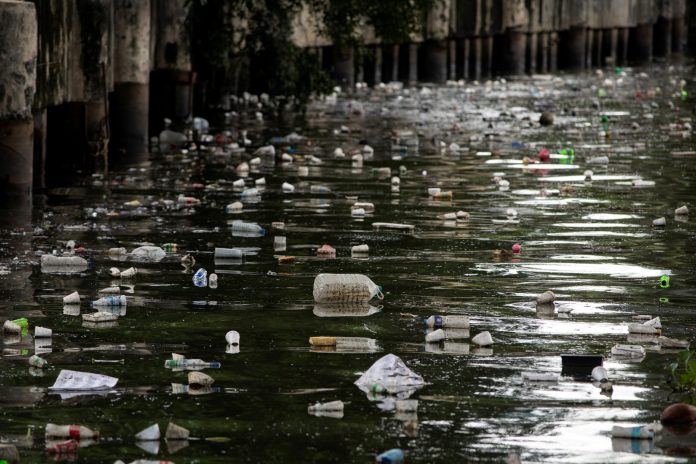
Philippine’s Pasig ‘River Warriors’ gather trash for a cleaner and better future
Date:

Share post:
A squad of Filipinos rake up rubbish on the banks of one of the world’s most densely populated rivers every morning, filling sacks in an ongoing quest to clean a waterway that is also a significant source of ocean plastics.
Who are these ‘river warriors’?
These “river warriors” are a ten-year-old organisation of roughly 100 people who work to clean up the debris that floats or washes up along Manila’s infamous Pasig River. The warriors use rakes and hand tools to remove trash from stagnant pools in various spots, wearing rubber boots and elbow-length gloves.
The warriors began as volunteers, but now get a basic salary from the local government and operate in small groups along the river.
Dexter Opiana, a six-year river warrior, says she and approximately 19 others work seven-hour shifts and gather an average of 80 to 100 sacks each day, with more during monsoon season. Plastic wrappers, single-use sachets, and packaging materials make up the majority of it. Surgical face masks have been mingled together with the other floating debris since the outbreak began.

Asia-The Capital of Plastic Pollution
According to a report published by Oxford University’s Our World in Data in 2021, Asian rivers produce 81 percent of worldwide ocean plastic, with the Philippines accounting for a third of that total. According to the data, the Pasig River alone contributes up to 6.43 percent of ocean plastic originating from rivers. Despite their Sisyphean task, the fighters remain hopeful for better days ahead.
“This has been our advocacy,” Imperio stated, “to get the river cleansed for the benefit of our children, our parents, our country, and mother nature.” Imperio, aged 52, has been a River Warrior for four years, but she has been a volunteer in Estero de Santibaez clean-up activities since 2007. She used to pick, shovel, or dredge out debris drifting in the water or deposited along the riverbank as a volunteer, but this has been her full-time profession since 2015.
The environment department’s assistant secretary, Joan Lagunda, said officials were working with local governments to implement correct waste segregation techniques and that informal settlers along the riverbanks will be relocated.
Marian Ledesma, a Greenpeace Philippines activist, believes the government should minimise single-use plastics and increase trash disposal and sewage regulation.

How Polluted is the Pasig river?
The Pasig River in Manila is one of the world’s most polluted waterways. The Pasig River, one of Metro Manila’s most renowned waterways, was once an important commercial and transit corridor in the Philippines’ early days. However, the Pasig River degenerated as a result of conflict and growing urbanisation, and by the 1970s, it had been pronounced biologically dead. The Pasig River, once regarded as the cradle of Philippine civilisation, has fallen into disrepair and ruin, unable to sustain life.
What is needed to change?
A shift in viewpoint was required to adequately repair the Pasig River. It didn’t matter how frequent the clean-ups were or how advanced the technology utilised to clean the main river; unless pollution along the 47 interlinked esteros that ran through Metro Manila was addressed, their efforts would be in vain. The key to successful recovery was to eliminate pollution at its source.
By 2012, PRRC has successfully rehabilitated the Paco River and the wet market beside it, thanks to the help of the local community, ADB, and other government organisations.

The Transformation
Estero de Paco had been completely transformed into a walking, breathable riverbank park, much to the satisfaction of its people. The initial group of these volunteers was later incorporated by PRRC, and the AFP and PNP provided them with comprehensive rescue and first-aid training. They were knighted as River Warriors at the completion of the two-day programme.
The River Warriors are the sole organisation under PRRC tasked with cleaning the waterway, spending lots of time, weeks, and even months on a clean-up operation for at least seven hours per day. The obligation for maintaining the esteros is then handed to the local barangays once the areas have been washed clean.
The River Warriors are proof that no endeavour is too big for us to take on if we all pitch in. This problem cannot be solved by a single organisation or group of people; like any other campaign for change, it is a lengthy and uphill battle filled with setbacks and hurdles.
Despite their difficulties, the River Warriors are determined to put in the effort. They only ask that we do our part and assist them in every way that we can.
Conclusion
The River Warriors’ motivation to work is what keeps them on the job. This rationale isn’t motivated by monetary gain, but by a sense of obligation—to one’s environment, one’s people, and future generations. They are true, fearless, and unwavering in their commitment to safeguard our environment at any costs, much like the Filipino warriors of old. As their motto goes, “Why wait until tomorrow, what can be done today?”
The event of World Rivers Day serves as a reminder that it is our obligation to save rivers, and we must do so. For a better life, rivers must be conserved and protected. Even the tiniest step to safeguard rivers can have a significant impact. So, let’s preserve the lovely rivers for a lovely tomorrow!! If we can be DOERS like the River Warriors, the world sure will be a cleaner place to live in.
